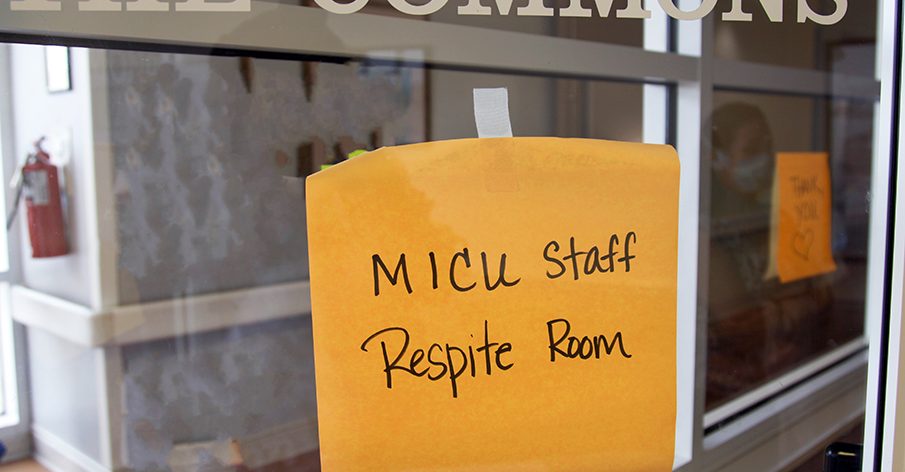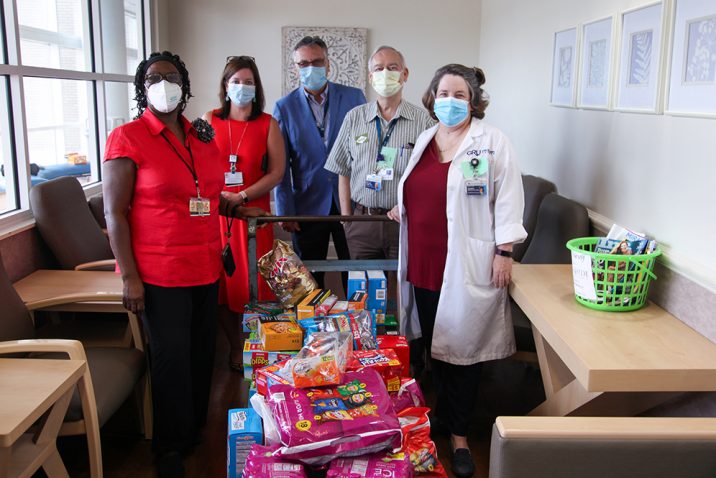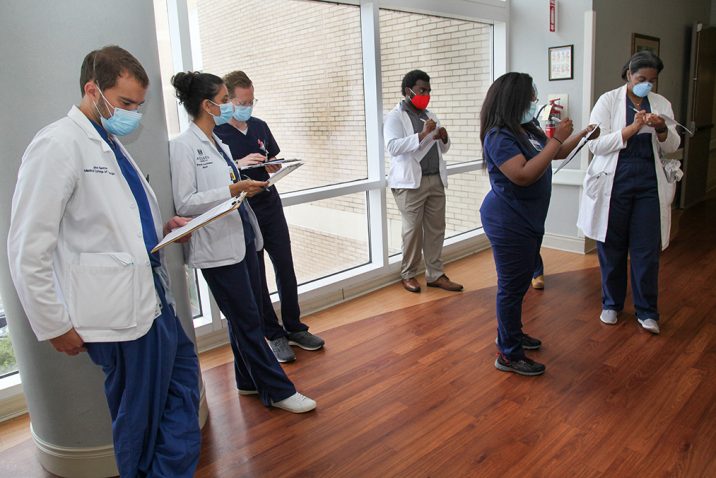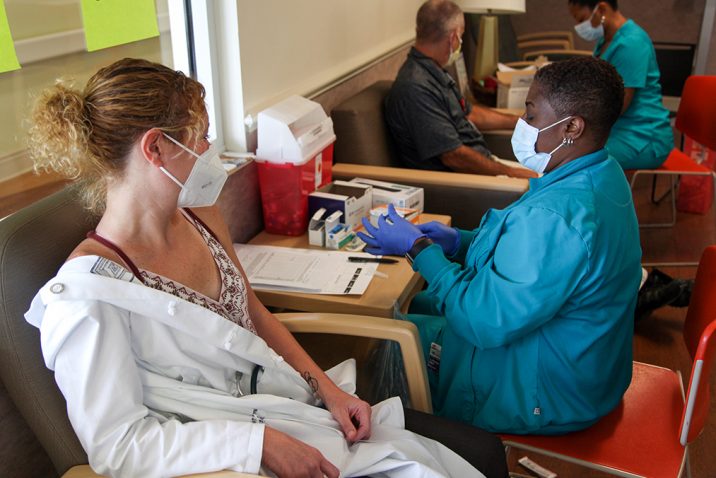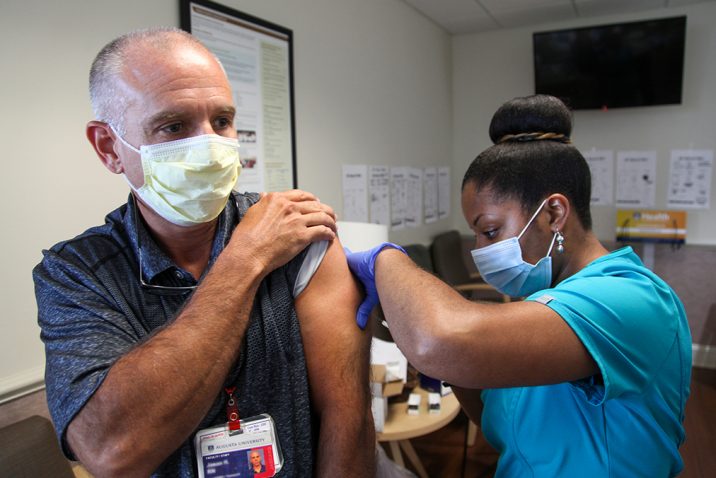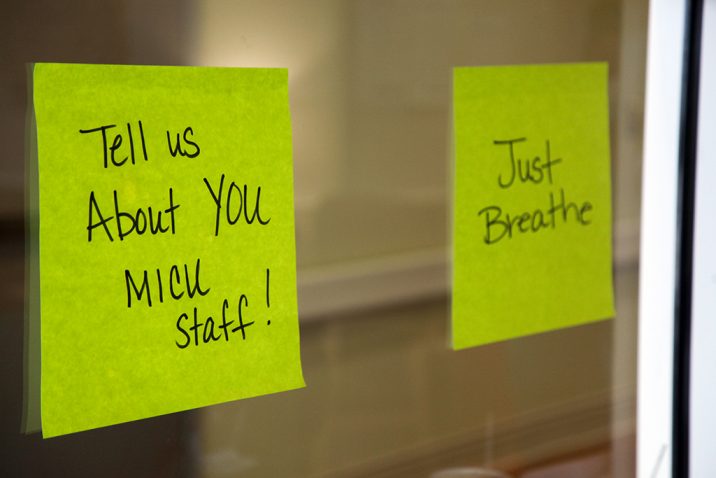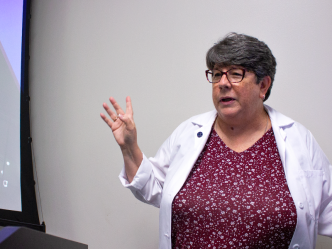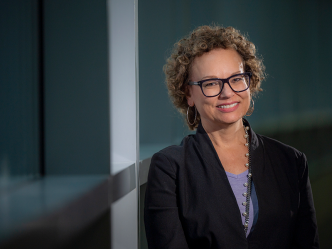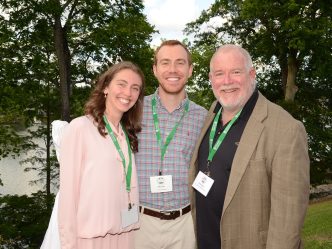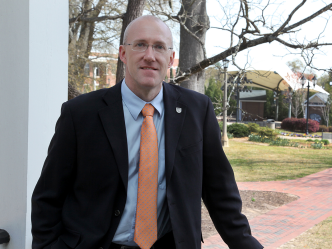Chaplain W. Jeffrey Flowers said working during the COVID-19 pandemic has been like living on a roller coaster: There have been highs and lows.
As director of Pastoral Care for Augusta University, Flowers said the hospital staff has celebrated the good outcomes and grown closer together in many ways because of the common mission they share.
“The bonding among staff who are on the front lines each day is truly a definition of what it means to be family,” said Flowers, who has worked at Augusta University Health for the past 26 years. “The down is that there is a heaviness, a grief that is cumulative, and we all live with a measure of fear that we might in some way take this home to our families. A common occurrence is that it is easy to forget what day it is. Each day begins to feel the same.”
The Pastoral Care team, along with Patient-and-Family Centered Care, the Department of Nursing, the College of Nursing and AU Health administration, have collaborated to develop mental health pods for the staff, which officially started on July 23.
“Sandra Clay, the nurse manager for Medical Intensive Care Unit, suggested that a space be provided for her staff where they could have some moments of respite from the intensity of being the frontline caregivers for many of the COVID patients,” Flowers said. “The goal was to provide a quiet place with some healthy snacks, inspirational literature, and an opportunity to talk to someone about the stress related to this work. This led to investigating what resources we could find to assist our caregivers on a regular basis.”
As Julie Moretz, Drs. Doug Pryor, Caroline McKinnon and Elena Prendergast, Regina Winters, Chaplain Louella Simmons, Clay and Flowers began to talk, the wheels started turning and a plan was developed.
“I teach mental health nursing and Dr. Prendergast teaches palliative care nursing … we don’t have nursing skills that necessarily pertain to the medical ICU to the physical health care that’s needed around COVID patients, but we’re both nurses and have a unique set of skills that has a bearing on what the pandemic has looked into one of the biggest things that we know of — it’s affecting our nurses in terms of the stress they’re under,” said McKinnon, who, like Prendergast, is a professor in the College of Nursing.
“We’re putting our skills together to work in conjunction with the chaplains to create a space where the nurses can come and get some relief from everything that they’re doing at work. We’ll have information about mental wellness such as relaxation exercises or just reminders to eat well, sleep well as best you can.”
McKinnon also noted that she has psychiatric nurse practitioner students who need clinical training. In addition, Pryor, a retired therapist, has agreed to be present for periods of the day to talk to anyone who wishes. He will also assist in making sure the hospital has the appropriate mental health resources available as well as offer supervision to the students.
“They’re going to be able to get the clinical training they need, by providing either individual or group-based counseling to the nursing staff. So it’s a win for everybody,” McKinnon said.
Flowers said it was important for all involved in the development process to come together and show their support for the AU staff who have been working on the front lines.
Winters, who works in PFCC, provides resources to stock the pods with needed amenities and is assisting in getting the appropriate resources to support the staff. She said NavCare donated food and snacks on July 29, a day where some employees who work in the high-risk COVID units were able to receive a measles, mumps and rubella booster, which may help act as a protective, according to McKinnon.
Moretz, who is assistant vice president of PFCC and chief experience officer, has been supporting the frontline staff and creating communication pathways for the patients, families and staff, while Simmons helped create the first respite chapel concept for AU Medical Center.
“It is very important that we let our staff know they are supported in this work,” Flowers said. “Initially, there were many ways in which support was shown. As the weeks went on,the outward expressions subsided a bit, even though the work and stress remained high. We are all in this together, but some folks are more at the forefront than others and experience a different stress level.
“We knew that together we had the resources to assist our colleagues and that this was bigger than any one entity,” Flowers added. “It is truly a team effort by many folks and departments. The moral distress and fatigue is high. The dynamic has also changed since the most recent surge involves people from our own community. It is important to remember that we are taking care of our friends and neighbors now. While we care for all people with compassion and empathy, it is different when you know the patients and families personally. That is just part of our humanity.”
Flowers also wants to remind everyone that chaplains are available 24 hours a day, seven days a week. The pods will also be open for all staff. He said the paging operator (706-721-3893) can always contact a chaplain. There are three chapels available in the hospital: the Adult Hospital Chapel is located on the second floor, near Terrace Dining; the Children’s Hospital of Georgia Chapel is located on the first floor across from the McDonald’s; and the Comprehensive Cancer Center meditation room is located on the first floor, just off the hallway from the lobby.
Both McKinnon and Prendergast will also be working to stock the pods with mental health resources, such as information on mobile apps and crisis line phone numbers for anyone who wants or needs more direct and immediate support.
At the beginning of the pandemic, the PFCC and Pastoral Care staff offered a weekly 20-minute WebEx discussion of topics surrounding being a caregiver in the midst of the pandemic. Flowers said they enlisted some mental health experts to assist in responding to specific questions or addressing issues in general.
“The sessions were transmitted live but were also recorded for others to be able to take advantage of later,” he said. “This program will be restarted with some modifications: a wider range of topics and experts and a follow-up session if people desire a personal conversation about the topic.”
Morning words of encouragement have also started again.
“Each day just before noon, a senior leader from the AU enterprise will offer a word of encouragement over the intercom system,” Flowers said. “This will lead to a short, 30-second word from one of the chaplains and/or PFCC personnel. The total time will be about 1 minute and 15 seconds but the goal is simple: to let everyone know they are appreciated and to offer a short break in the day for what we hope will be an inspirational moment.”
 Augusta University
Augusta University
